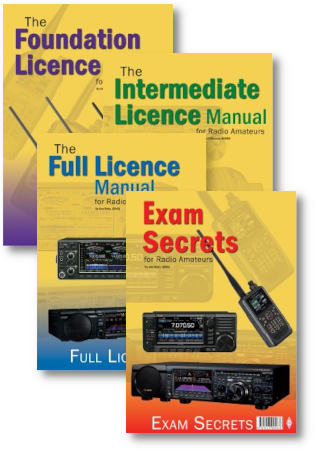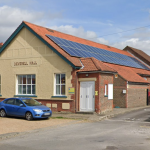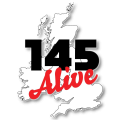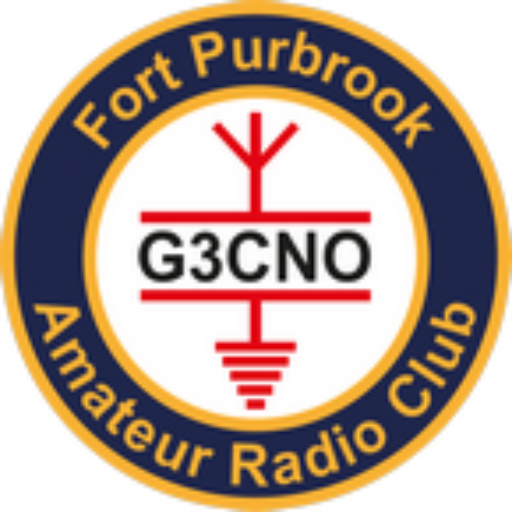Beginning Amateur Radio
How to Get Started with Amateur Radio (Great Britain). Answering the often-asked question: “how do I start a hobby in amateur radio?”
Amateur radio can be a fascinating hobby that connects people (and devices) through the airwaves. You may communicate over short distances (maybe around 1-100 miles) and long distances (sometimes literally halfway around the globe!). Whether it’s global communication, antenna theory, electronics, emergency preparedness, or contesting/awards, amateur radio offers something to everyone.
To help beginners get started, we offer this friendly guide:
- INTRODUCTION:
What is Amateur Radio, and why would you be interested? - STEP 1 – The Licence:
Why you need a licence and how you get one. - STEP 2 – Taking the Examination:
Taking your examination, and getting a call sign. - STEP 3 – Your First Equipment:
Deciding on your first radio/transceiver. - LASTLY:
Using your new transceiver.
What is “Amateur” Radio?
Amateur radio is a hobby for individuals who use specific radio frequencies to communicate with others (transmitting and receiving) locally, regionally or worldwide. Governments allocate specific radio frequencies, also referred to as amateur bands, for public use.
Listening on these frequencies requires no licence (research WEB SDRs and SDRs on Google). Transmitting on these frequencies does require that you have obtained a licence (in the case of us British residents: from OFCOM, via examination from the Radio Society of Great Britain (RSGB)).
People use amateur radio for various purposes, including social interaction, a way to learn about radio technology, and sometimes for emergency communication.
So you’re wondering how to begin in amateur radio, and our club can help you.
Unlike the internet or mobile phones, amateur radio does not need a large infrastructure behind it to make it work. This means you can use this as a reliable tool for communication at home, in the countryside, and in remote areas.
You can use your transceiver in the home, in your garden, from a park, on top of a hill (or a mountain if you’re in Wales!), from your car, or from a club’s “shack”.
| 👋 | Need some help in person? If you’d like some assistance with learning the syllabuses for your examination or preparing for an RSGB examination, get in touch with our Examination Secretary: Graham M0CYX, or our Membership Secretary: Peter G4NKX. We’ll be happy to welcome you to a club meeting – or arrange a Zoom session – where you might discuss matters with us. |
Why Amateur Radio as a Hobby?
Here are four reasons why you might like to get into amateur radio as a hobby:
- Community and friendships: There can be a strong sense of camaraderie between amateur radio enthusiasts, both locally and internationally.
- Learning & practising new skills: Amateur radio involves electronics, antenna theory, and wave propagation. Some aspects can involve using computers (e.g. your laptop, tablet, or smartphone). This makes the hobby a great way for you to improve upon and apply your technical knowledge.
- Exploration: You can communicate with people from different countries and cultures, explore remote parts of the world, or make contact with people within a few miles of your home—all through your radio.
- Emergency preparedness: Amateur radio is often used during emergencies when traditional communication methods fail.
And the very first step to the question of “how to become an amateur radio hobbyist” is: get your first licence!
Getting your Licence

Amateur Radio Licence Training Manuals (RSGB)
Listening to amateur radio transmissions requires no licence. But, in Great Britain, to transmit legally using amateur radio, you will need to obtain a licence from Ofcom (the UK communications regulator).
Ofcom offers three levels of licence: Foundation, Intermediate, and Full. You usually take each examination one at a time, but for those who already have experience of radio elsewhere, there is a “Direct to Full” examination available.
Each licence level grants additional privileges over the previous one. The Foundation Licence, though, allows you to begin operating the very moment you receive your licence, with only a few restrictions: limited to 25W power max, some bands must not be used, cannot transmit from abroad, etc.
Let’s talk about starting with the foundation licence.
Option 1: Obtain a Foundation Licence
The Foundation Licence is the entry-level qualification. It allows you to use amateur radio with certain restrictions, such as limited transmitting power (25W) and access to specific frequency bands. Although Foundation is an entry-level licence, many operators choose to stay with this licence, as it can give you everything you need to fully enjoy an amateur radio hobby.
You go about obtaining your licence by:
- Taking a Training Course: Many amateur radio clubs offer Foundation Licence courses, which cover basic knowledge like how to use a radio, safety procedures, and simple electronics.
- These can be completed in a classroom setting or online.
- Alternatively, you can purchase study guides and teach yourself (see RSGB Exam Guides).
- A popular (and free) online training course is provided by Essex Ham (link: https://www.essexham.co.uk/amateur-radio-training). The course is divided into weekly study modules with videos and written information, followed by a short test after each module to check that you’re understanding the module.
- Sitting an Examination: After completing your training course, you’ll need to pass a multiple-choice exam. The exam is straightforward, focusing on the material covered in the course. The examination is run by the Radio Society of Great Britain (RSGB – https://rsgb.org/), has a cost associated with it, and is usually taken online (you’ll need a computer and video camera, as there will be an invigilator watching the exam candidates).
Once you have passed your Foundation exam, you’ll be issued a call sign—your unique identifier when operating your radio. This is issued free of charge for life (or as part of your examination fee, if you want to see it that way). You’ll then be free to use amateur radio as you like (within the boundaries outlined in your licence).
Intermediate and Full Licences
Although many choose to progress to subsequent licence levels, this is purely optional. Many remain with their foundation licence, as it gives all the privileges they need to operate on amateur radio.
However, if you wish, you may want to advance to the Intermediate Licence, which requires more in-depth knowledge of radio operation and allows greater transmission power and access to a few more frequency bands.
The Full Licence gives you maximum access to frequencies and transmission power, as well as the ability to operate internationally without restrictions.
Each step requires additional learning and exams, but they open up more opportunities and technical challenges along with gaining additional privileges.
Option 2: Obtain a Full Licence via “Direct to Full”
The “Direct to Full” training and examination offers an alternative route to obtaining a full UK amateur radio licence. This path is designed for individuals who already possess a strong foundation in radio and electronics and wish to gain full operating privileges without progressing through the Foundation and Intermediate tiers. The examination consists of a single, more comprehensive theory test, consisting of:
Part 1
Focuses on licensing conditions and operating practices, requiring a higher pass mark to ensure a solid understanding of regulatory and procedural aspects.
Part 2
Delves into the more technical aspects of amateur radio, including transmitters, receivers, antennas, propagation, and safety.
Upon successfully passing the “Direct to Full” examination, the candidate receives the full spectrum of amateur radio privileges, including higher power limits and access to all allocated frequency bands, for those with the requisite prior knowledge.
Get your First Transceiver
Now that you have your licence, it’s time to invest in your first transceiver (a radio that transmits as well as receives).
The type of radio you choose first will depend on what you want to begin with in the hobby.
- Handheld Radios (HTs): These are portable, easy-to-use radios, often the first purchase for beginners. They allow you to operate on VHF and UHF frequencies, which are good for local communication.
- Base Station Radios: For more powerful setups and long-range communication, a base station setup with a larger antenna and more power is necessary.
- Second-hand Options: Consider looking for used equipment to save money as you explore the hobby. Many online platforms and local clubs offer second-hand radios that are in great condition.
Base Stations
A base station is a transceiver that runs from your “shack”. A base station will need an antenna installing (if you’re using RF radio without an Internet connection). Such antennas may be homemade (lots of information on the Internet, and this website about that) or commercial. They can be fitted onto the top of your shack’s roof or temporarily erected in your garden (removed when you’ve finished for the day). Many options!
Alternatively, if you choose a digital base station (DMR, Yaesu C4FM/Fusion, ICOM D-Star etc) These transceivers can use either an antenna or your home Internet connection (or both). Even if you choose no antenna, you will still need to be licensed even though the transmission is going through your broadband router.
Join a Radio Club
There’s lots of information on the Internet, but joining an amateur radio club can help put you in touch with people having lots of experience. Amateur Radio Clubs are filled with experienced operators who can provide valuable advice, help you with your equipment, offer hands-on experience, and arrange regular “field days” (meetings where members operate radio together).
You can find an RSGB-affiliated club via the RSGB Website: https://rsgb.org/main/clubs/club-finder/
You can find other amateur radio clubs by searching Google and social media
Many clubs (and other organisations) host “nets”, where licenced amateurs tune to a specific frequency at a set time to practice communicating with each other, share information, and discuss the hobby.
Fort Purbrook ARC’s 2m net is weekly on Thursday evening in the Hampshire area – details here: https://FPARC.uk/club-net/
Start Transmitting!
Now that you have your licence and radio, it’s time to start talking (or “bleeping” if you use your computer or a Morse code keyer instead of your voice). Using your call sign, you can begin communicating with other radio operators on the amateur bands.
Some easy ways to get started include:
- Tune in to local repeaters: Many amateur radio operators use repeaters, which boost signals and make it easier to talk to others in your area.
- Join a net: Nets are organised meet-ups on certain frequencies where hams communicate regularly. These are great places to practice and learn.
- Explore different frequencies: Don’t be afraid to experiment with different bands. The more you use your radio, the more confident you’ll become.
Keep learning and experimenting.
Amateur radio is a vast hobby with endless opportunities for learning and experimentation. Here are a few ideas to keep you engaged:
- Try different radio types: some radios are analogue only, some include digital transmissions. Some radios can transmit via a home “router”, sending your transmissions through the internet to other digital amateur radio users.
- Build antennas: Many amateur radio enthusiasts enjoy creating their own antennas to improve signal strength.
- Participate in contests: Radio contests are organised events where operators try to make as many contacts as possible in a given time.
- Experiment with different modes: Amateur radio isn’t limited to voice communication. Try exploring modes like Morse code (CW), Digital modes, or Slow Scan TV (SSTV).
Closing Thoughts
Amateur radio is a rewarding and versatile hobby that offers both technical and social benefits. By obtaining a Foundation Licence, joining a club, and acquiring basic equipment, you’ll be well on your way to enjoying the airwaves. As you continue to explore, you can advance your skills and meet people from all over the world, keeping the spirit of amateur radio alive and thriving.
Take the plunge! Amateur radio opens up a whole world of communication and discovery right from your home.
Contents




















0 Comments